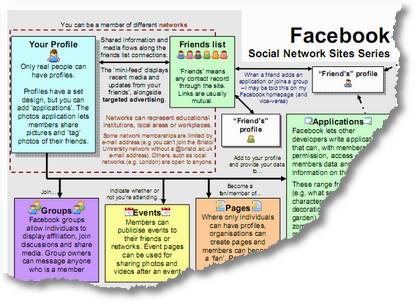
Social Networking Sites (SNS) are pretty complicated things. If defining them isn't tricky enough, trying to create a one page guide that communicates all the salient facts about Social Networking in general, and a social networking platform in particular, is turning out to be very tricky indeed.
For the research I'm carrying out into how Youth Workers can support young people's interaction with online social networks, and for a workshop next week, I've been trying to explore the common features, and the specific features, of different SNS in order to be able to support an informed discussion about the opportunities and risks each present.
For my purposes, I'm looking to have a tool to provide the shared understand that lets us explore questions like:
- Are our concerns about SNS linked to a specific feature of a specific site? Or are they linked to some common and integral feature of all SNS?
- What aspects of SNS design maximise opportunity and minimise risk?
- Are there some features of some SNS that mean the responsible adult simply can't engage with young people on that site? Or are there specific features that oblige responsible adults to engage with young people in that space?
- What does a youth worker need to know about SNS to be able to support young people's use of them? Do they need to know about each specific SNS? Or is some general knowledge enough?
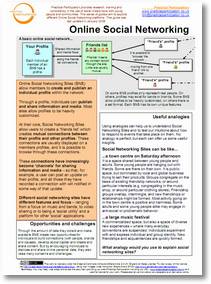 As you'll see from the image above and the attached first draft of a general SNS one page guide, and a specific guide for Facebook, when I've tried to provide something to answer those questions, I've been realising it probably won't fit into one page – and the guides have been somewhat loosing the simplicity that I hope was a virtue of earlier guides in the series.
As you'll see from the image above and the attached first draft of a general SNS one page guide, and a specific guide for Facebook, when I've tried to provide something to answer those questions, I've been realising it probably won't fit into one page – and the guides have been somewhat loosing the simplicity that I hope was a virtue of earlier guides in the series.
So – I though I would take a step back and ask for your input to help me refocus these guides slightly…
- What would you want in a one page guide about Social Networking Sites in general?
- What would you want in a one page guide about a specific Social Networking Site?
Whilst I can't promise I'll cover exactly what you want – I can try to make the guides flexible enough so that you can adapt them to meet your needs.
And as an extra question (I'm already leaning towards an affirmitive answer on this): should I ditch the diagrams currently in the draft guide? They carry a lot of information – but I'm not sure that they make it very accessible. What do you think?
Attachment: Early Draft One Page Guides – Social Networking.pdf
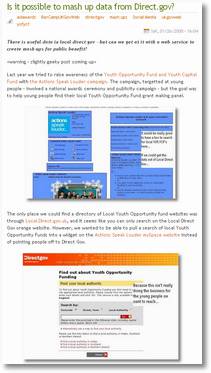 On Saturday at
On Saturday at 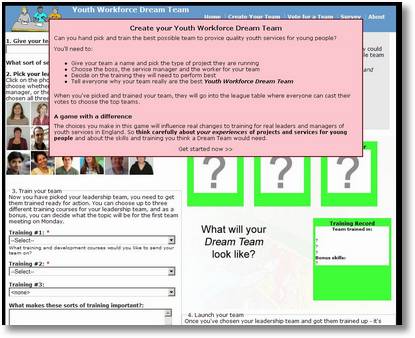
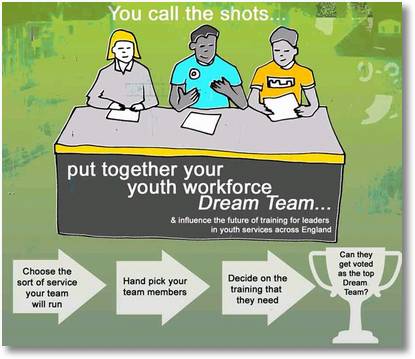


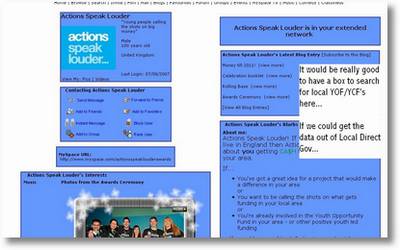
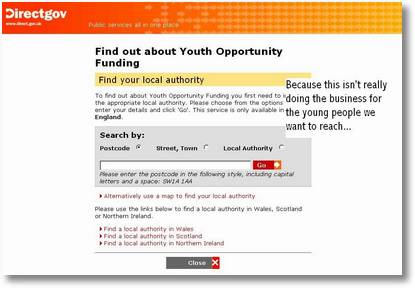
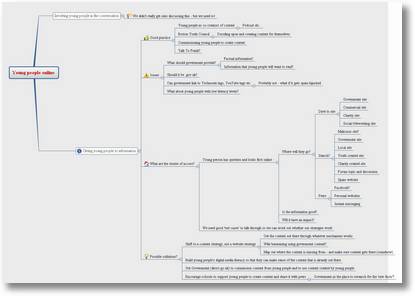
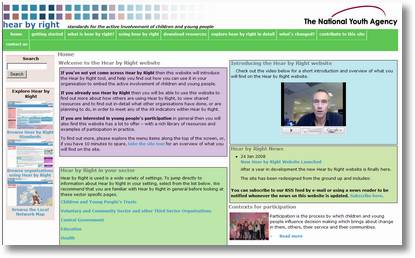
 The Young Researcher Network have just launched their programme of basic training for their network of 15 youth-led research projects (I created some resources for their launch conference in December last year) – and they're planning what training will come next. So far, with help from the
The Young Researcher Network have just launched their programme of basic training for their network of 15 youth-led research projects (I created some resources for their launch conference in December last year) – and they're planning what training will come next. So far, with help from the